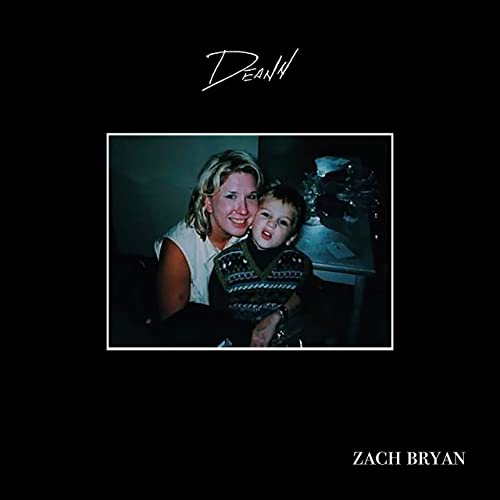Now here’s a viral sensation I can get on board with.
2019 has seen no shortage of new artists release debut albums or, at the very least, breakthrough projects that have entered them into serious, critical conversations. Of course, that comes with the unsaid, obvious caveat that these artists plan for something more, and while these projects are good starting points, they are, after all, just starting points. For Zach Bryan, it’s currently unknown where his path will lead.
To certain sectors of country music fans, Zach Bryan is another unknown name to add to the roster of emerging talent in the independent country scene; to others, Bryan is already a bonafide superstar, gaining traction from his work through simple word-of-mouth communication. In fact, if you’ve logged onto your chosen social media platforms recently, you may have seen accounts sharing videos of some guy singing a tribute to Evan Felker (of the Turnpike Troubadours) or singing his own material. It’s not hyperbole to say that Bryan has become a viral sensation off his music, and that’s without the help of a record label, manager, publicist or any other promotional tool.
And while Bryan has released a debut album called DeAnn, it doesn’t come with the clichéd background story of a hungry-eyed kid moving to Nashville and chasing a dream; instead, Bryan is an active duty Navy ordinance man currently stationed in Jacksonville, Florida, and won’t be deployed again until October 2020. Music is just a hobby for Bryan, but it’s a hobby his friends thought he should fully pursue. So, with the encouragement and help of a former boss, Bryan went to Guitar Center, picked up some recording equipment, rented an Airbnb in Jacksonville, and recorded both songs written five years ago, and songs written about a month ago.
As such, it’s hard to review DeAnn as a typical album. It’s purposefully unfinished, and even Bryan had some concerns about that; but despite that, it’s more well-crafted than some albums with bigger budgets. If anything, considering Bryan counts Felker and the Turnpike Troubadours among his influences, this album feels like his Bossier City – an amateur-sounding record that might not live on as the best in the discography someday, but also one that shows a lot of potential and that, should Bryan continue making music, there’s a wide audience ready to embrace him.
Since this is an all-acoustic album, the only two areas to discuss are the content and Bryan himself. On that note, while comparisons to Childers have been made for Bryan’s inflection and tone, I’d argue it’s a feature rather than a flaw. Perhaps it’s just a sign of the raw recording nature of the album, but there’s a more naturally intense passion coming from Bryan that I wish I heard from Childers. And not to make direct comparisons, but it’s an example of someone wearing his influences on his sleeve without trapping him and, as a result, letting him transcend beyond that. There’s a raw immediacy to Bryan’s voice that’s able to draw the listener in, and given how dark the content is willing to go, he’s able to make sure they stick around, too.
In other words, while it’s hard and, in some cases, unfair to question a project’s authenticity, there’s a simple, frank earnestness to Bryan’s delivery that never feels like he’s trying to sing anything other than songs that mean a lot to him. Autobiographical or not, you naturally believe what he’s selling.
Speaking of that, though, while DeAnn hasn’t been labeled as a concept album, it does show a natural progression from young recklessness into a more grounded maturity by its end; sin into salvation, if you will. And while that’s not the most revolutionary concept for a country album, it doesn’t need to be when the writing is every bit as good as the surrounding hype implies.
Frankly, it’s quite impressive that a 23-year-old could craft an album with this much depth and heart behind it, let alone make it connect as well as it does. Yet even at its darkest moments, Bryan never speaks from the perspective of someone living in that moment, but rather from the perspective of someone who’s put some distance between himself and his past, ready to start anew. He had fun raising hell with his friends on “Flying Or Crying” and “Doing Fine,” but he’s also able to acknowledge that, for one, not only do those times not come back on the former track, but also that life requires that balance of recklessness and strength to stay fit for others. After all, even he states that he doesn’t want to burn out so young on “God Speed,” but he never condemns his past actions so much as finds himself conflicted with them. On one hand, there’s a natural sense of maturity we all come to grips with as we grow older, yet there’s also something beautiful about living in, and capturing, a moment that we experience mostly when we’re younger. In both cases, however, not only do we take that ability for granted, but as we grow older, we also forget to cherish the time we have left with those around us, a sentiment that rings true on the title track.
Even Bryan can admit it’s an odd paradox, hence why the sentiment of “God Speed” carries so much weight to it and can resonate with anyone, even despite the obvious religious iconography. Yet DeAnn also opts for simpler sentiments on its surface, too, which is where Bryan’s true gift for songwriting shines. Again, it’s hard to escape the power of those influences, but thankfully, Bryan adopts the fundamental core of why those great artists resonate – the framing and scope of the work. Basically, while certain tracks are sold in a more straightforward manner, they carry a poetic undertone to them that, not only provides some fantastic imagery on “Moon In Oklahoma,” for example, but also once again adds weight, sincerity, and, most importantly, specificity to the works that allow them to connect on a broad level without sacrificing those richer details.
One criticism of DeAnn, however, is, given that the main focus of this album is either in Bryan’s delivery or in the lyrical content, certain tracks do run together at points. “Hope Again,” for instance, has a sharper hook and sentiment to it that speaks to redemption through a loving relationship better than similar, lesser tracks like “Shivers Down Spines” or “Snow.” Similarly, on tracks like “Letting Someone Go” or “Man That’s Never Known You,” the pure, crushing defeat of the former track rings better than the pettiness of the latter track. That’s not to say these tracks aren’t good in their own right, but in the context of the album, it could have afforded more variety in the overarching themes at points.
But that also speaks to the two best tracks on the album, “Condemned” and the title track, the former of which probably being the closest thing one could label as “catchy” here. But beyond a more rollicking approach to the acoustic melody I enjoyed, it’s one track that puts Bryan directly in the song, speaking to the newfound attention to his music, its impact and how it’s connected with other listeners, all of which Bryan never planned to happen. Actually, even he acknowledges in the track that there’s an unease he feels in knowing how these highly specific tracks are connecting as well as they are. And if the title track wasn’t already a crushing moment in its own right, as Bryan offers a tribute to his mother, there’s one moment in the song where he says he’d rather have her around, even if it might not mean having the same songs that have caught on like wildfire for him, a side to grief and loss that’s rarely acknowledged by musicians. Again, a key theme of DeAnn is addressing a lost feeling we all experience at times, whether it be through naturally growing older or wondering if we’re doing all we can at any given point, but that moment is the most devastatingly crushing blow of them all.
As previously mentioned, DeAnn is a bare-bones acoustic album, so discussing the production and instrumentation is essentially a moot point. But it’s easy to imagine how the songs could evolve with a little more presence; you can almost hear where the pedal steel would cry out on tracks like “God Speed,” “Don’t Give Up On Me” or “Doing Fine,” and “Snow” is just begging for a fiddle accompaniment. But it does also speak to just how gripping this album can be in its rawest form, showing that, at the core of it all, these are great songs that speak for themselves. Still, there are moments where I wish the acoustics sat higher in the mix, particularly on “Snow” and “God Speed,” but considering how it was recorded, DeAnn still mostly sounds excellent.
But as for whether or not we’ll get the chance to watch Bryan grow with his music is something only he knows at this point. Again, this isn’t a typical incident for the country music industry, but it does echo a common sentiment of the genre’s roots – pure, simple authenticity will always prevail in some way. And in terms of natural talent, Bryan has an undeniably moving tone to his voice that’s immediate, and the material itself shows a strong sense of detail, especially for an artist so young. It goes without saying, however, that DeAnn is best looked upon as a good starting point rather than Bryan’s magnum opus. Time will tell what becomes of all of this, but if the question is whether or not Bryan should take this hobby any further, I don’t think there’s many people who would try and stand in his way.
Both Saving Country Music and Grady Smith have provided excellent coverage of Zach Bryan for anyone looking for more information.

